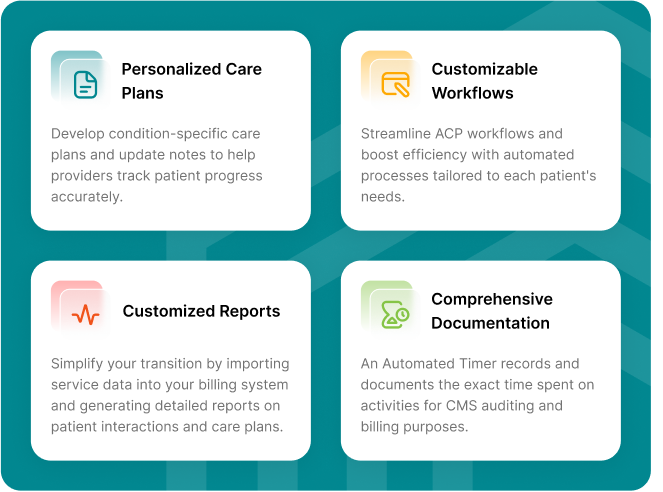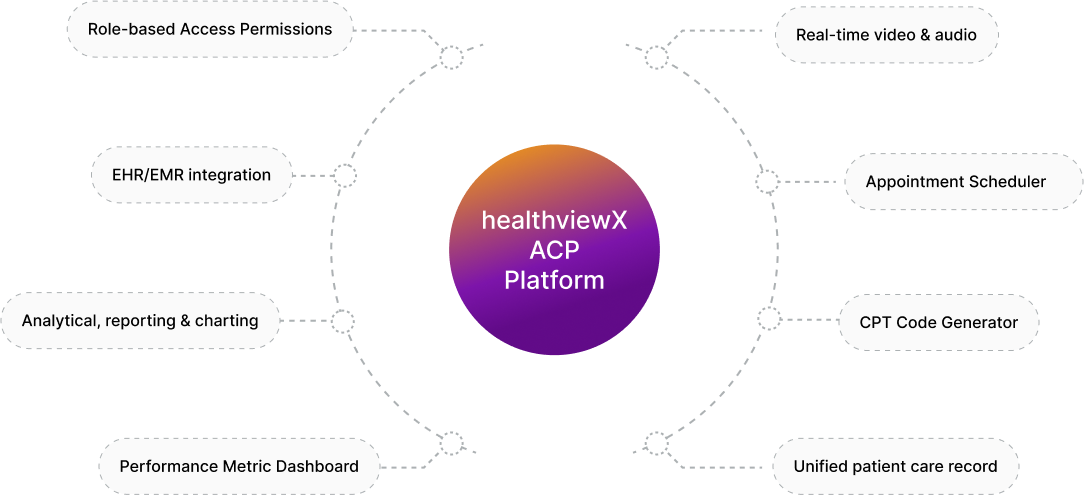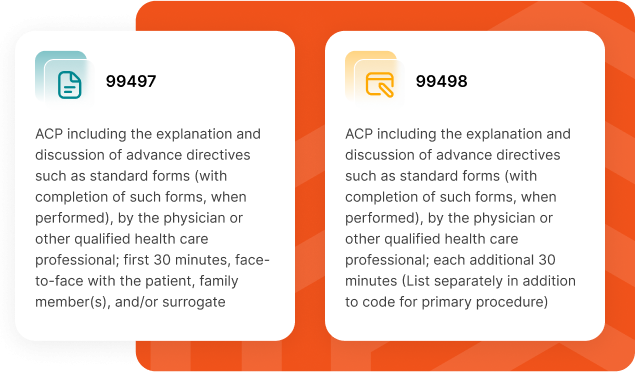Advance Care Planning
Streamline ACP Services and Maximize Reimbursements
Seamlessly deliver ACP services while maximizing reimbursements. Provide ACP services efficiently and improve the quality of end-of-life care for your Medicare patients.

70%
of participants who faced treatment decisions in the final days of their lives were incapable of participating in these decisions.”
- Health and Retirement study

What is Advance Care Planning
ACP involves a face-to-face discussion between a physician or qualified health professional and a patient, family member, or surrogate about the patient’s healthcare preferences in case they cannot make decisions themselves. ACP can be provided in any setting, and Medicare covers it anytime. If conducted during an Annual Wellness Visit (AWV), there is no copay for the patient.
Medicare pays for ACP as either

An optional element of a Medical Wellness Visit (MWV) that includes the Annual Wellness Visit (AWV) or/and the Initial Preventive Physical Examination (IPPE)

A separate Medicare Part B medically necessary service
How ACP is different from Hospice Care

Advance Care Planning may include a discussion about hospice care, how it works, and how it fits into choices about end-of-life care.

Hospice care is a care choice that a person may make if he/she is diagnosed with a terminal illness with a life expectancy of six months or less and they accept palliative care instead of other Medicare covered treatments for the illness.


healthviewX Advance Care Planning
HealthViewX ACP application empowers providers to streamline their ACP process, improve patient experience and accelerate value-based profitability
With HIPAA compliant scalable solution, document the minute-by-minute level of common end-of-life discussions with patients including living wills, durable power of attorney, organ and tissue donation, etc. that traditional EHRs are not set up to do.
ACP Application Highlights

CPT Codes &Descriptors
All traditional Medicare beneficiaries qualify for ACP services. Hospitals, physicians, nurse practitioners (NP), physician assistants (PA), or non-physician practitioners (NPP) may bill ACP services as described below.
Note: There is no limit on the number of times that ACP services can be reported for a given patient in a given time period. However, if these services are billed more than once, a change in the patient’s health status and/or wishes about end-of-life care must be documented.
